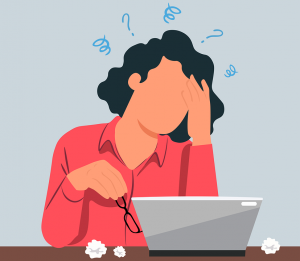Sleep Deprivation in Students

https://www.flickr.com/photos/83633410@N07/7658254172
November 5, 2019
High school students throughout the United States suffer from sleep deprivation due as a result of staying up late and having to wake up early for school, which affects them in various ways.
It is commonly known that each morning, students dread waking up early and starting a 7 hour school day. Not only is waking up early undesirable, but most students are running on under 7 hours of sleep due to an ample amount of work that needs to be done the night before.
An article written by Ruthann Richter from Stanford Medicine states that according to a 2006 National Sleep Fund Poll, 87% of high school students get considerably less than 8-10 hours of sleep, which is the recommended amount. The lack of sleep can menace a student’s health and academic success. Sleep deprivation increases the likelihood of migraines, poor mental health, and anxiety.
Early start times for high schools negatively affect students’ academic performance in their early morning classes. According to the 2014 School Health Policies and Practice Study, 93% of high schools begin before 8:30 in the morning. Child Mind Institute says that teenagers need approximately 9 hours of sleep in order to properly function and learn in school. Early start times and hours of homework do not allow students to get the recommended amount of sleep. In their first period classes, students are too exhausted to focus on the work that needs to get done.
Homework, projects, essays, and more school work keep students up into late hours of the night. Craig Canapari, MD, states that in his sleep clinic, a high school student told him that he does not fall asleep until after midnight, mostly due to the two hours of homework solely from his Advanced Placement classes. Canapari also states how the maximum recommended amount of homework for high school students is 3 hours.
Many students wake up early, have a long day at school, then have sports or extracurricular activities. When they get home, they have dinner and other personal things that need to get done. But, they still have to find a way to fit hours of homework. When do they find the time to sleep? They barely do.
Sleep deprivation takes a significant toll on mental and physical health. According to Healthline Media, not sleeping affects one’s digestive system, respiratory system, cardiovascular, and endocrine system. It can also lead to anxiety, depression, and suicidal thoughts. Without a sufficient amount of sleep, the brain produces extra ghrelin, which is an appetite stimulant. Sleep deficiency can also cause one to feel too exhausted to exercise and can cause weight gain.
When someone does not get enough sleep, their immune system is not able to produce infection fighting substances such as cytokines. Not only will this make one more susceptible to illnesses, but it will take much longer to fight them off.
According to US News, there is a distinct association between sleep deprivation and anxiety and depression. A study was conducted with 28,000 high school students. It was found by scientists that the risk of feeling hopeless increased 38% for each hour of sleep lost. Less sleep at night can cause students to experience more emotional stressors. Teenagers are already significantly exposed to poor mental health. Sleep deprivation simply adds fuel to the fire.
The main factor that needs to be adjusted is school start times. The state of California has already made a great stride in the process. According to ABC News, Governor Gavin Newsom signed a bill stating that middle schools cannot begin before 8 am and high schools cannot begin before 8:30 am. It is probable that their reasoning for this is to improve students’ health and academic performance. Although the start times of California schools before the bill are unknown, it is easy to assume that the new bill allows students an extra 30 minutes to one hour in the morning.
Sleep deprivation in high school students put them at risk for poor mental and physical health along with an unsatisfactory performance in school. Students all over the country would genuinely appreciate and take advantage of a later start time, as it would make their lives easier in different ways. Being able to get more sleep can positively affect a student’s life in multiple ways.





